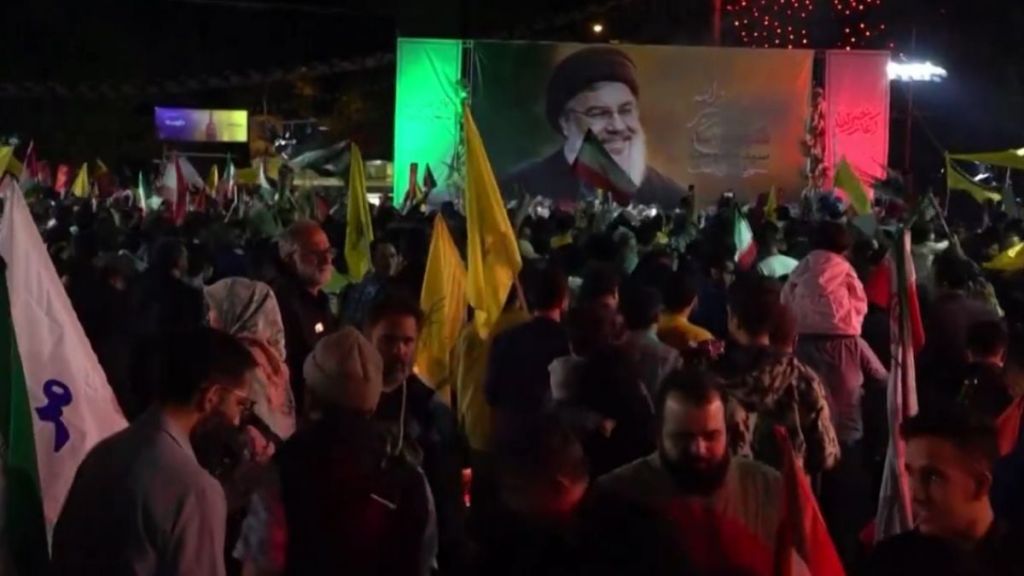
Ironical as it may sound, the 180 ballistic missiles that Tehran fired at Israel on Tuesday night may have been designed to cool the temperature in the region. For one, the White House tipping off the world ahead of the attack saying it was imminent effectively means that Iranians may have deliberately drawn attention to their manoeuvres, in the hope, among other things, Washington might be able to better restrain Tel Aviv.
The Iranian foreign minister Abbas Araghchi has confirmed that he worked the phones to emphasise the attacks did not represent an escalation. He also said the necessary messaging to the Americans had been done via the Swiss mission in Tehran. No one seriously believes that Israel will brush off the attack as being of little consequence.
What Did Tehran Achieve By Waving This Red Flag?
What did Tehran achieve by waving this red rag to Israeli Prime Minister Benjamin Netanyahu who is proceeding without any restraint, as evidenced by both his actions and his stated intentions? For one, the Iranians may have been left with little choice but to respond to the depredations the Israelis have wrought over the last year in terms of the targeted assassinations of the various Iranian, Hezbollah and Hamas leadership.
The killing of Hezbollah chief Hassan Nasrallah may have been the last straw. Further silence would have been misconstrued in a fraught Iran as well as the wider region as a sign of Iran having been whittled down to size. As Iranian supreme leader Ayatollah Ali Khamenei put it: “Being in mourning does not mean being depressed and sitting in a corner.”
The Iranian military leadership parsed it finer when it said the attacks were in retaliation for the deaths of Hamas leader Ismail Haniyeh, Hezbollah leader Hassan Nasrallah, and Revolutionary Guard General Abbas Nilforushan. Iran’s chief of staff Major General Mohamad Bhageri also promised Wednesday's barrage of 180 missiles would be “repeated with bigger intensity and all infrastructure of the regime will be targeted.” It is a classic two step forward, two steps backward.
There is a pattern of warning to Tehran's behaviour. On April 14, when it sent 300 relatively slow moving missiles to Israel, it had given a much longer warning window, and sent only 120 ballistic missiles, almost 99 per cent of which were intercepted.
180 Missiles Launched By Iran
On Wednesday, more than five months afterwards, it refined its attack with 180 missiles, most of them faster and lower flying, a more pointed demonstration of capabilities. It is too early to say how many broke through Israel's protective shield but the number is sure to be bigger than April. The idea, from Tehran's point of view was to give Netanyahu pause before he makes his next move.
Netanyahu is a man in a hurry, and political circumstances dictate that he cannot stop. He has a clear window of opportunity of three months till the results of the American elections come in to achieve his mission. The true contours of his aims mission are not clear but he has flagged certain ideas repeatedly, underpinned by the idea that he is winning the war on all seven fronts he detailed in his brief and pointed speech to the UN.
Netanyahu's Three Markers For Himself And The World
Comprehensively thumbing his nose to the seemingly ineffective American entreaties to slow down, Netanyahu set three markers for himself and the world. One, Hamas has to go; second Hezbollah had to be defeated in Lebanon; and third, “appeasement of Iran” must end. Can all this be achieved in three months?
In the last week of September he secured an $8.7 billion aid package from the United States to support his military goals, the clearest indication that Americans are happy, whatever else they may claim in public, to have Netanyahu do as he pleases.
As the first anniversary of the Hamas attack on Israel veers around in another four days, the question to ask is what will Netanyahu do next? Take out Iran's oil installations and risk polarising the world even more? Hit the nuclear installations? More high profile assassinations? Massive damage to provoke regime change? We will know soon enough.